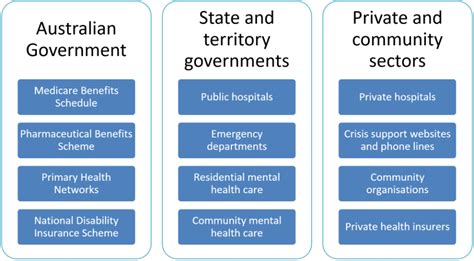Imagine a scenario where more than half of the mental health workforce in a state is on the brink of resigning, leading to a potential catastrophe in the healthcare system. Well, this grim reality is currently unfolding in New South Wales (NSW), Australia.
“This is an impending disaster for NSW and our entire health system.”
The Australian Salaried Medical Officers Federation NSW has raised alarm bells about the critical situation. Over 200 psychiatrists have handed in their resignations, citing dissatisfaction with working conditions and remuneration. The looming “mass resignation” scheduled to take effect imminently has sent shockwaves through the healthcare community.
ASMOF’s acting executive director Ian Lisser emphasized that the impending exodus of mental health professionals could push the state’s health system “off a cliff.” The repercussions are dire, with existing staff shortages already resulting in closures of mental health facilities across NSW.
Mr. Lisser highlighted how patients seeking psychiatric treatment might face extended waiting times, with some spending up to five days in emergency departments before receiving care – a distressing prospect for those in urgent need.
“Despite knowing these risks, the Minns government is doing everything but actually fixing the problem.”
The crisis stems from long-standing issues such as understaffing and inadequate resources within the mental health sector. The call for a 25 per cent pay increase by doctors was met with resistance from Premier Chris Minns’ government, further exacerbating tensions between healthcare providers and policymakers.
While NSW Health Minister Ryan Park expressed concerns about the practicality of meeting such financial demands, frontline workers remain steadfast in their plea for fair compensation and improved working conditions. The deadlock between medical professionals and government officials underscores deeper systemic challenges facing Australia’s healthcare infrastructure.
“There is one solution to this crisis and that is to retain psychiatrists in the NSW Health system.”
As negotiations continue amidst escalating tensions, patient care hangs precariously in the balance. The possibility of compromised services looms large if a resolution isn’t reached swiftly. Stakeholders acknowledge that attracting and retaining skilled psychiatrists is paramount to safeguarding public health interests.
Expert analysis suggests that addressing these grievances requires holistic strategies encompassing competitive remuneration packages, enhanced support systems for healthcare personnel, and sustainable staffing models tailored to meet evolving patient needs effectively.
In conclusion, as stakeholders grapple with finding common ground amid mounting pressures, the urgency of resolving these challenges cannot be overstated. The fate of mental health provision in NSW hinges on collaborative efforts to navigate this turbulent period successfully.

